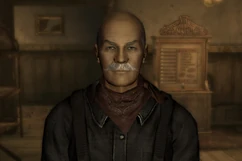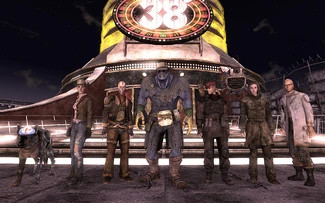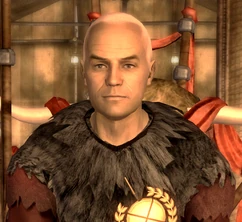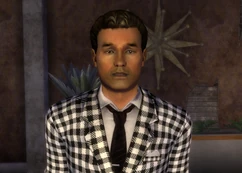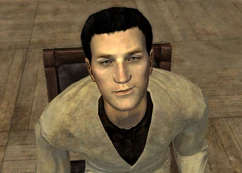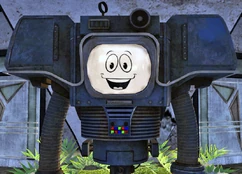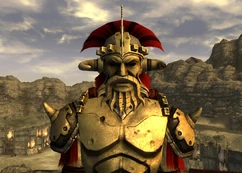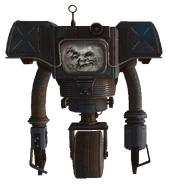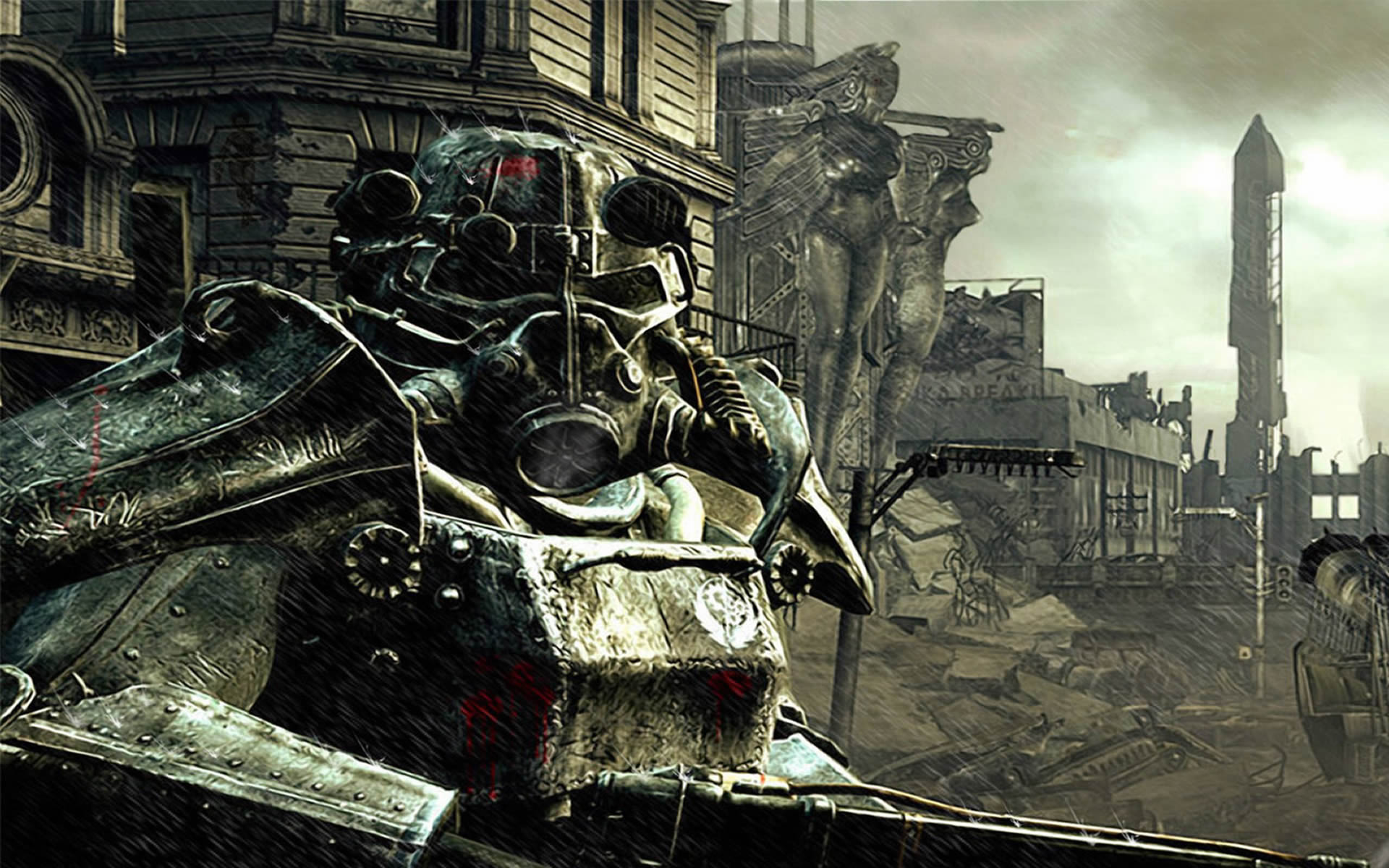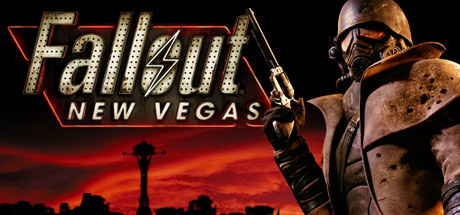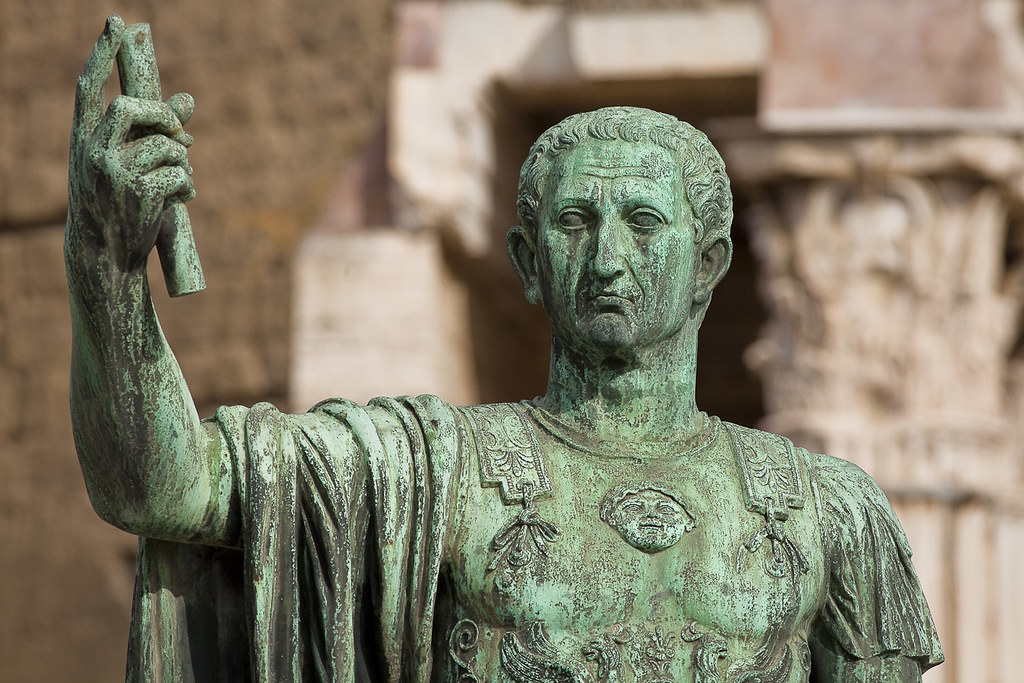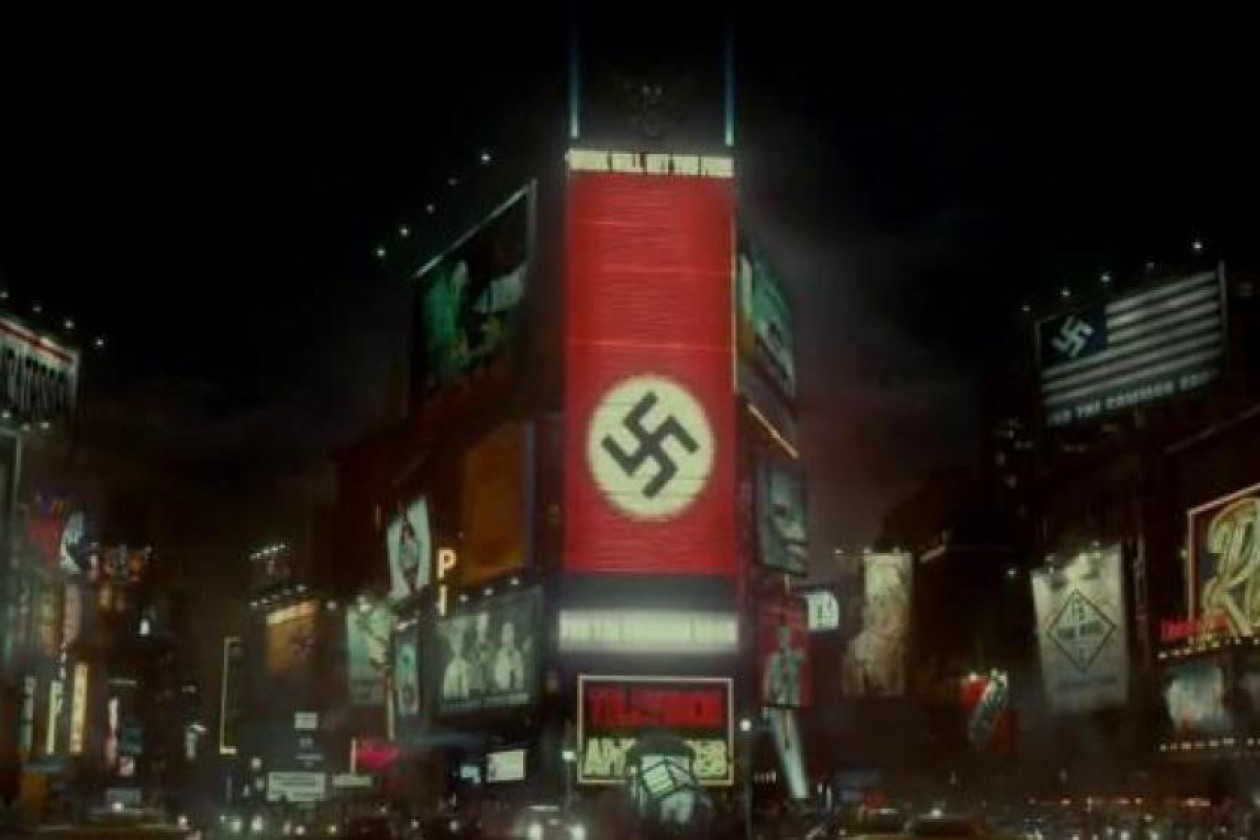I originally wrote this story in November 2014 for a Creative Writing Class - and the same one that I wrote Eleven Forty for. There were some revisions over the school year, including a version where it was actually a movie pitch to a Hollywood producer, but that idea went out the window. I wanted to write an alternate history story without actually mentioning the exact point of divergence, though there are some hints throughout as to what happened, and also to focus on someone caught up in the mess, but without the ability to change anything.
Ropes
There was a time when the lights burned all
night, but that was just a hazy memory now to Greg as he looked out the frost-etched
window at the setting sun. Even in the evening, under the glow of artificial
light, it used to be so warm and friendly, so inviting to be in New York City,
the center of everything. Now, with only a few lights acting as beacons on a
sea of dark blue sky and grey-brown slush on the streets twenty stories below,
it seemed colder, unforgiving and dreary.
Greg turned back and looked up at the clock
on his desk, the long hand making its methodical, uncompromising march to the
12 on top, while the smaller hand struggled to keep up as it neared the six
directly below it. Greg sighed in relief that his work day was almost over,
looking through the papers on his desk beside the old, trusty Underwood
typewriter to figure out which to file, which to revise, which to put in the
bag that would be taken to the furnace downstairs and destroyed. That one small
piece of paper with the address scrawled on it in blue ink needed to disappear
somehow before anyone saw it.
“Done for the day, Herr Collins?” a stiff German accent asked, startling Greg. His
mind screamed at him, trying to activate a fight or flight response, but
outwardly Greg simply shuffled that folded piece of paper into reports and
files. Greg looked up to see the grey-clad, blond-haired, blue-eyed six foot
tall Captain Hans Kreuger, the German officer in charge of the New York branch
of the Militärverwaltung in Amerika, The
Military Administration in America. He looked like he just goose-stepped right
off a recruiting poster.
“Ja,
it’s six o’clock, and I have to go somewhere tonight,” Greg replied.
“I see,” the captain said. “I did not think
you were one to go out for social events, Herr
Collins.”
“It’s my grandmother, she is ill and not
expected to live much longer,” Greg replied to his foreign superior.
Captain Kreuger was shocked at learning
that. “Oh! I’m sorry to hear that. If that’s the case, take the rest of the
week off.”
Greg just nodded solemnly. “Yes sir, thank
you.”
Captain Kreuger nodded, then clicked his
jackboot heels together and shot his arm out. “Heil Himmler!”
Greg snapped his arm out and repeated the
call to the Nazi. After he was satisfied that his employee had done the salute
properly, the officer mechanically nodded and stiffly turned on his heal to
march along to the next booth. He was efficient, meticulous, and a die hard
Nazi, with just enough of a soft side to give his underlings time off if they
needed it.
Greg sighed in relief as he heard the
German voice berating a man for a minor mistake on some paperwork, and pulled
on his old, yet comfortable black jacket, picked up his battered suitcase and
the nice fedora he had bought with his Christmas bonus, and walked down the
hall to the elevator.
The elevator was crowded, and from the roof
speakers quiet music played. While before it would have been soothing jazz
music, the Nazi Regime’s hatred of jazz and other “decadent” music meant that
now only martial music would play in the elevators. The two Nazi’s in the
elevator hummed along, closing their eyes and smiling, as if they were either
back home or on parade in front of the Führer, marching down Broadway after the
conquest of the US.
The bell dinged and the door opened on the
ground floor, and the soldiers who were in the elevator exited first. Common
courtesy, Greg thought: after all, they have the guns. As Greg stepped out of
the elevator, he noticed his childhood friend Will leaning up against the wall
in the spacious lobby, reading a newspaper. Will looked up and waved.
“Greg! Haven’t seen you in a long time!”
Will said, matching footsteps with Greg as he pushed the rotating door to leave
the office building. Once outside in the cool late winter air, Greg placed the fedora
on his head, and pulled it down as if to hide from the world.
“How have you been?” Will asked, wrapping
an arm around Greg, just as he used to do.
“Busy,” Greg replied. “Work has been hell,
with the uprising in the Midwest and Canada. At least New York is quiet for
once.”
Will chuckled. “You worry too much, you
know? You really need to loosen up.”
“Well my boss gave me a couple days off
because of my Grandma, so I might take a day and go to a play or something,”
Greg replied.
“I thought your granny passed away three
years ago?” Will asked.
“My other grandma, on my father’s side.”
Will hmm’ed, but he didn’t say anything
else.
They walked a few steps down the street. “Have
you ever seen so many stars at night?” Will asked, looking up.
“No.” Greg had no interest in the stars,
but that didn’t stop him from taking a peak upwards.
“Never seen so many stars before. Light
pollution was always a problem. But not anymore.” Will continued to look
around. “Silver lining, eh?”
“Sure.”
Only a few cars were on the streets: a few
old big hulking American cars with massive fins like some spaceship, with
American names like Chevrolet and Ford on them, made of good quality American
steel from a foundry in Pittsburg or Detroit. Then there were the more
numerous, but still rather small in number German cars: small efficient
creatures, made of aluminum or alloys that could be spared from the production
of tanks, airplanes, battleships and grandiose structures in Berlin.
Volkswagen, Opel, Daimler, and half dozen names were on them, though it was
hard to tell if there were differences, as they all looked the same, with only
slightly different paint jobs. An automotive aficionado would have pointed out
each difference, but it was of no interest to Greg.
One thing all the cars had in common was
the regulatory sticker on the windshield, a ring of 13 stars around an
outstretched eagle clutching a swastika, the symbol of the Third Reich’s
occupation of America. Greg knew that symbol too well, as he worked for it
every day, doing the paperwork that the conqueror’s demanded, and didn’t want
to do them selves, all with that eagle and swastika glaring down at those that
had been take over.
Greg and Will passed some marching soldiers,
both the steel-faced Nazi veterans and inexperienced American volunteers from
the west, patrolling up and down the streets day and night, looking out for any
suspicious activity they could find: a car with a fake sticker; a package too
big to be a present for a child; too many people gathered together and talking
quietly amongst themselves; or, their favourite pass time, seeking out someone’s
papers which were not in order when demanded. That was all that life was now:
equal mixtures of stickers, stamps and emotionless faces of both the winners
and losers, with a sprinkling of paranoia and a pinch of depression and fear.
“Papers, please!” a Texan solider barked as if
on cue as Greg walked to one of the checkpoints that split up New York. It was a
sad, small wooden booth, leaning up against a non-functioning streetlight,
manned by a trio of American Nazi soldiers with a tank and a machine gun nest
to force the people to funnel through the checkpoint. They all sprung up almost
overnight after marital law had been declared, like toadstools after a rain in
a forest. Greg handed the papers over, and they were snatched from his hand,
and looked over. Boredom was on both sides of the exchange, a boredom of duty,
repetition and submission, with a simmering layer of tension and fear that was
never acknowledged but was known to both parties.
“Your address is not from around here,” the
soldier, a lieutenant said. “Why are you down here at this time of night?"
Greg’s heart skipped a beat, but he was
able to keep his face impassive. “I am visiting my grandmother. She is ill, and
not expected to last much longer. I just wish to make sure she is comfortable.”
The officer grunted, and continued looking
over the papers. Greg could feel something sliding around his body, slowly
tightening up as it made its way around him. He could feel his arm twitch,
trying to break those ropes. But they were the kind that held down boxes on
trains and boats. The kind used by the hangman. They would never break, unless
someone took an axe or a flame to them, and even then it wouldn’t let go
easily. But if they did break, chaos and destruction would burst forth,
sweeping everyone around him into a tsunami of hatred and anger.
The
soldier at last nodded. “Very well, you may go.” He handed back the papers, and
Greg passed by, a single cold drop of sweat working its way down his face. Will
breezed through the checkpoint as he usually did, and caught up to Greg and
carried on like a shadow to the momentarily relieved Greg. But those ties were
still there, but had slackened off.
“Nazi efficiency,” Will commented.
“Those were Americans,” Greg replied. “Not
even German.”
“They still looked, acted and behaved like
Nazis,” Will shot back, though not too loudly. Those men were still in earshot,
and didn’t like being talked back to. It really wasn’t paranoia if they were
out to get you, was it? Those thick strings, hemp grown for durability and
strength, closed tighter around Greg’s body as he thought of what they would do
if they found any excuse to beat up a few civilians because they were having a
bad day.
“So where are you actually going?” Will
asked. “Your Grandma lives in the Bronx, no?”
“Going the long way around,” Greg hurriedly
replied. “I need the exercise.”
Will didn’t say anything, but his eyebrow twitched
upwards.
“Didn’t know you were so worried about your
body,” he said, as Greg dug through his pockets to search for a pack of
cigarettes, before finding it in his left pocket. He fumbled for his fancy, gold
Zippo lighter, a gift from his boss for ten years of loyal service for the
Occupation, his finger rubbing over the etched swastika on the outside. Fishing
out a cigarette and sticking it in his mouth, he cupped hands in front of his
face, to give the flame a fighting chance to catch the tobacco and paper on
fire. He inhaled, feeling the smoke enter his throat and lungs, before exhaling
a cloud of pungent air in a white cloud that could have been confused with both
cold air or a miniature steam train set, similar to the one he had when he was
a boy in Ohio before the Swastika swept in, lighting a flame like his lighter.
Turning down one street, then another, then
another, going in a circular route for what looked like no reason that anyone
following him would think Greg was either crazy or a spy. But he was neither,
at least he told himself, and his SS security check confirmed it. Greg had
smoked two more cigarettes in this time, tossing the butts away into the slushy
piles of grey snow with other finished tobacco products, broken glass beer
bottles and the unbreakable Coke bottles.
“Still haven’t cross the river,” Will
commented. “Are you sure we are going to your grandmother’s?”
“You know better,” Greg muttered.
Will chuckled. “Ah, you must feel like a
regular Sir Francis Walsignham then.” He thought for a moment. “No, Admiral
Canaris. Being German and all. The Nazi’s like using German guys to compare
to.”
Greg grunted, but otherwise didn’t say
anything. After all, Canaris committed suicide during the war. Well, the Nazi’s
claimed he committed suicide. Everyone knew otherwise, but wouldn’t say that.
“Have you ever thought how suspicious this
all is?” Will asked.
Greg didn’t say anything. Of course he knew
how suspicious it was. But if you don’t talk about things like that out loud,
then you don’t have to consider it too deeply.
“All they would need is to know of that box
of books in your attic,” Will said, one lips parting to show a smirk.
Greg
flinched as if a bullet had just flew over his head, barely noticeable to
anyone walking by, and clenched his hands into a tight fist so his fingernails
dug into his hand. Those bindings made themselves known once again, digging
into his flesh. “They will never know. Plus, not like I ever read them.”
“But possession of forbidden works is a
crime. You should know that.”
“I do.”
“Then why do you still have them? Just
trying to taunt the SS, are you?”
“No.”
“Then why not get rid of them?”
“Because.”
“Makes you feel brave and heroic, standing
in front of some books, doesn’t it? Sticking it to the man, the occupiers.”
Will struck a heroic pose. “Defender of the Novel, Crusader of the Poem,
Paladin of the 72! Years from now, rumours will spread of the Hero who protected
five boxes of books and a suitcase full of records!”
Greg did his best not to chew on the nearly
burnt out cigarette, so instead he pulled it out of his mouth and flicked off
the ashes before putting back in his mouth. But he was still silent as he
finally turned down a residential street, full of mid-rise apartments
buildings, three story townhouses and people; so many people. Those older ones
that were born before the invasion were stooped, shuffling along, in clothes
that years before would have been boxed away or given to someone else less
fortunate, and new jackets or hats or shirts or skirts bought to replace them.
Some people even had patches on their clothes, which would have been a sign of
low class before, but now was the average.
They kept their heads down, which
they would have said was out of respect, but was really out of fear. The fear
that one wrong glance would summon the police to their home one night, to cart
them away. It happened; not as often as it used too, but often enough for the
terror to be there: a midnight knock on the door, followed by loud shouts in
both German and English, then a family - husband, wife, children, grandparents,
aunts and uncles - all carted off and never heard from again, as if the tumor of
dissent was so large that the only way to take care of it was the cut it out
from the root.
But then there were the children. It was
always the children who would, no matter what happened, play with each other on
the streets, laugh and cheer as they kicked a soccer ball or played tag and
made friends. Not even a dictatorship could rule out such fun.
The little kids, of course, would be
brought up not only to tolerate the Nazis, but also to support them
wholeheartedly. It was already being drilled into them, with their mandatory
requirements to join the Hitler Youth and the propaganda they received in
school. Greg remembered giving his six-year old nephew one of those new toys
for Christmas, just a few short weeks ago, with the bright red plastic case and
the two white knobs on the side. The first thing his sister’s son did was to do
his best to draw a Swastika like he had been taught to do in class. And
everyone there remarked and praised the lopsided yet straight lines and
imperfect connections nevertheless. All Jimmy had to do when he went back to
class was talk to his teacher about how his uncle or parent’s didn’t like the
awkward swastika he drew on his toy for them all to disappear.
That fear of strangers seeing something
suspicious was doubly reinforced because it was the ones you loved: your young
child not knowing better; a cousin that was so engrossed in the Party he would
denounce anything; an uncle working for the occupation…
But for now, the meagerly dressed kids with
mud and grime over their pants and faces could live and play, as all children
should. Greg allowed a smile to cross his lips as a red faced, brown haired boy
let loose a snowball that sailed through the air and landed with a wet splat on
the chest of another young boy, who fell into a snow pile with a laugh.
“Makes you almost wish you were a young,
carefree kid again, huh?” Will asked, but Greg didn’t answer. Will knew Greg’s
answer to that question already: it was the same one he would have given.
Down the slushy street, past the hunched
adults and the frolicking children, was an old brick apartment building, four stories
high. Half the windows were still intact, and about half of them had light
streaming out. Greg turned up the walkway, and pressed the buzzer for an
apartment on the third floor.
“Who is it?” a static filled voice asked.
“Delivery for Mr. Wirasaki,” Greg replied
in the code he memorized.
“Mrs. Jackson will meet you,” came the
static reply. The door of the apartment buzzed open, and Greg slipped inside.
“Well aren’t you being all sneaky and
devious,” Will said, following behind Greg as he started climbing up the steps.
“One day, I wish you would just shut up and
go away,” Greg stopped and growled, glad that there was no one around to hear
the argument.
“What? For saying things that are true?”
Will replied, turning around and facing Greg with only a couple feet between
them. “Well, they are true, even if you don’t want to agree.”
There was a silence, the two men staring at
each other; Will watched Greg with eagle eyes, holding his hands together
behind him, leaving himself open on the front; Greg glaring at Greg under the
rim of his fedora, his fists still tightly clinched and as white and bloodless
as the snow in Norman Rockwell painting of pure American homeliness on the
Christmas edition of a pre-Occupation magazine who’s name had been forgotten
for not being appropriate in the New Order. Rockwell was one of those names
that everyone knew but wish they didn’t know, mostly because he was an
American, but one that supported the old ways. Some Resistance propaganda was
just an old picture that Rockwell had done for the magazine, stuck to a wall
somewhere. Rockwell may be gone, one of the innumerable victims of the invasion
and occupation, but he was still alive. Just on life support.
“And still, here I am. Do you not have the
backbone to make me go away?” Will taunted Greg. “Go on. Do it.”
Greg snarled and swung at Will, but Will
was too fast and ducked as Greg’s fist swiped the air where Will’s face had
been and it smacked the peeling wall, impacting the old wood with surprising
force. The noise was loud, and had more people been in the building, they would
have heard it. The few who lived around here in this rundown neighborhood would
have assumed it’s somebody dropping something, or a fight going on, and just
push it to the back of their minds, and carried on with life. The fewer
questions that came up, the fewer answers that needed to be found.
If only Greg could do that. Those ropes
were getting tighter, now constricting his neck, a snake hungry for a meal, a
yawning drop demanding a sacrifice to Justice. One wrong move, and it was over.
Greg took a deep breath and let his fist
unfurl. A few streaks of blood dripped from his knuckles and began forming shapes
and images on the back of his hand and fingers: his mind tried to draw out the bright
red tentacles reaching out for skulls and bones, crisscrossing each other in
what he would describe as constellations of skin and blood materializing on the
back of his hand. After a moment of staring at the design on his hand in morbid
fascination, Greg stuck his hand into his pocket. It wasn’t that bad. It would
go away, hopefully. He walked to the end of the hall, to the room he had called
up to earlier. He knocked on the door, and waited for a moment as whoever was
on the other side to look through the little peephole to make sure it was the
person they were expecting, before unlocking the door, sliding the rusty bolt
out of its latch and opening it for Greg.
“Ah, Greg, great to see you tonight,” a
young man by the name of Jake said. He was tall and handsome, with a fire in
his eyes that demanded action and excitement, most likely the reason for his
being here and having joined this group.
“Been busy at the office, wasn’t able to
get away too much,” Greg explained as he slipped off his jacket and kicked off
his slush covered shoes, though he still wore a heavy sweater to fight the
cold. He continued to clutch his battered suitcase as tightly as he could. That
was the only thing he would never let go. “Anyone else here?”
“About half the usual people. Tom, Jerry,
and Michal thought the Blackies were onto them, so they’re out hiding
somewhere. Jen and Marty had to go out of town to see a relative in
Pennsylvania. Don’t know when they will be back.”
Greg nodded, and was lead into the homely,
if ill kept apartment. Coffee and beer stains were all over the floor and
counter, while the dust liberally coated large areas of the apartment. Old cardboard
and wood boxes full of clothes and old magazines and books piled up against the
wall in a scarily haphazard way which made Greg nervous to walk near. In the
center of the main room, around a small table, were four men and three women,
all with some kind of drink in front of them. He could see a couple bottles of
beer, a half empty bottle of vodka, a half full bottle of wine, a nearly
depleted bottle of whisky and a tipped over bottle of rye which no one had yet
set upright again.
Greg nodded to the folks around the table,
and they nodded back to him. He took an empty seat, and tried to relax in the
warm and stuffy apartment. Beside him, Harry slipped a cigarette from the
package in his shirt pocket and stuck it in his mouth, then started searching
for something to light it. After a moment of searching, Harry realized that he
didn’t have any matches with him. But Greg quickly reached into his pant’s
pocket, and after a moment of fumbling, pulled out his swastika etched Zippo
lighter, and struck it. Harry leaned forward and puffed, getting the coffin
nail lit up, before a cloud of smoke was blown from his nose and mouth. He
nodded, a silent thanks to Greg.
“So, anything new at the Occupation HQ?”
Jim, in hushed tones, asked Greg. His rough and calloused hands, from years of
working hard and playing just as hard, grabbed hold of his beer bottle and
upended it, his Adam’s Apple bobbing up and down on his throat as he drank it
down. The beer, especially the cheap German imports, was much better than
before. Will would have quipped, “Another silver lining?”
“Not much, rumors that they might ask for
American Volunteers for the Russian Front. It sounds worse over there than
anybody is saying,” Greg replied. That was an understatement: the censored Times and Herald, along with the Nazi Party rags, radio stations and TV
channels all told the same story: the Commies were being slaughtered in the thousands,
any and all uprisings are crushed, and the Reich continues to advance East. But
the casualties were never mentioned, but even here in America, the soldiers
from Germany were nervous that eventually they would be sent to fight the
Russians. No one there wanted to do that.
“That would be good for us, you know,”
Kelly said, running her precisely manicured finger around the edge of her wine
glass. “The fewer fanatics on the streets, the better chance we have.”
“Do we have a date yet?” Greg asked.
“Three months,” Kelly replied. “Say around
the middle of May.”
Greg bit his lips, but forced himself to
nod. That would be around Hitler’s Birthday. Although the Fuhrer was now dead
sixteen years, having died as his tanks finally rolled through Moscow in ‘45,
his birthdate was a holiday throughout the German Reich. It was Himmler who led
the invasion of Britain, the subjugation of the Middle East, the annexation of
America.
Greg knew what he was getting himself into.
It was dangerous for everyone involved, but here he was. Was it right? Maybe.
Was it worth doing? Again, maybe. He didn’t want to think about that. Those
questions were what made these things so hard to do. Those ropes were getting
tighter, tightening around his neck now.
Just a match, or a knife; let me cut the
ropes…
Jake came around and offered a bottle of
beer to Greg, but he declined, much to everyone’s surprise.
“Why not stay and have a drink with us?”
Jim asked, taking the opened bottle from Jake and upending it, downing half of
it at once. Five empty bottles already filled the table in front of him. Liquid
courage was just as good as the normal kind, and easier to come by.
“I’m sorry I cannot stay longer. My home is
on the other side of the city, and I do not want to be out after curfew.”
The assorted group shrugged. “Well,
whatever you want. But what is the point of living if you don’t live every so
often?” Jim asked again.
Greg stood up. “Maybe next time,” he said,
and walked around the table, saying good-bye and putting on his jacket again in
a rush, before leaving the apartment only minutes after he had arrived.
“That wasn’t suspicious at all,” Will said,
following behind like the little puppy dog he was.
Greg didn’t say anything, but walked
quickly down the hall to the stairs. He walked down the first flight and was
turning the corner to the second, when a black arm grabbed hold of his shoulder
from the shadows and spun him around.
The grip was tight, even through the black
gloves, making Greg’s shoulder nearly pop out of its socket. Greg’s eyes went
wide as he stared face to face with the Gestapo officer that stopped him. His
cold blue eyes and long, lean face stared deep into Greg, and a small smile
crossed his lips.
“Very good, Herr Greg,” the SS officer said in quiet English, with barely a
German accent. “We got the information we need. You may take the wires off
now.”
Greg nodded weakly, and opened his jacket
and pulled up his sweater and pulled off the small recording device, along with
the wires to a battery pack and the switch in his pants that turned the
contraption on. His lighter nearly fell out of his pocket, but Greg caught it
before it fell to the floor.
“The Third Reich and the Occupation is very
pleased with your services so far,” the Gestapo officer continued, taking the
device in his hands, and then slipping them into his own pocket and producing a
piece of paper. “Especially in turning in the wanted criminal William Novak. We
may need use of your services again. Until then, a bonus has been wired to your
account, and this form will allow you to get home past curfew. I’m sure the
money will be more than enough for compensation. Heil Himmler!” He barked, snapping his arm into a salute.
Greg snapped his arm up as straight as he
could. “Heil!”
The officer turned around and walked into
the closest room uttering some German that Greg didn’t quite catch, and a
moment later three other SS officers followed him out, the black and silver
ghosts silently tramping upstairs to where Greg had just been. It was going to
be quiet in that room from now on, if the building itself wasn’t going to
mysteriously go up in flames in the next half hour.
As soon as they passed, Greg allowed
himself to weakly walk down the stairs, out the door, and down the street. The
children were gone now, and only a couple of men were still out, hurrying home
as the curfew drew near. A light snow with an equally light breeze began,
sprinkling white powder over the city, covering the brown slush with a layer of
white. Muffled by wood and brick, shouts of German and a woman screaming could
be heard. Greg turned away, willing his senses to ignore it.
Will stood there, looking down on Greg as
he leaned up against a short brick wall, crumbling from years without proper
maintenance.
“Why did you do it?” He asked, his voice calm
and collected, which would be much to Greg’s surprise.
“I… I…”
“It was the books. You just wanted to keep
your precious books?”
“No.”
“The money?”
“No…”
“Your job?”
“N-no,”
“Your house?”
Greg said nothing.
“Your job? Your life?”
Greg was still silent.
“Or was it that you would rather kiss a
jackboot instead of fighting for what was right?”
“We fucking lost!” Greg shouted at last,
silencing Will. “It’s over! The Nazis won! There is no point to any of this, is
there?”
Will just stared at Greg, his eyes unblinking.
“We lost because of people like you.” Will came closer.
“And there is no point
anymore because the people like you are all that is left.”
Will turned around and walked away, as the
swirling snow of the evening swallowed him up. Greg wanted to chase after, to
apologize, to say sorry, but it was too late: years too late. The tightness
around him went away, slowly, except around his heart. Maybe later he would
return, but for now…
The
rope jerked as a trapdoor was sprung, his heart caught in the tight grip. Greg grabbed
his chest, slowly sliding down the crumbling brick half wall, and took a deep
breath, a tear streaming down his face before it froze in the cold. Relief,
exhaustion, sadness, anger, despair, joy, depression and a dozen other things all
came and went in rapid succession, leaving only a shell behind as all the emotions burnt themselves out.
It was over.
Greg looked up. There were so many stars up
there. More than he had ever seen before.
